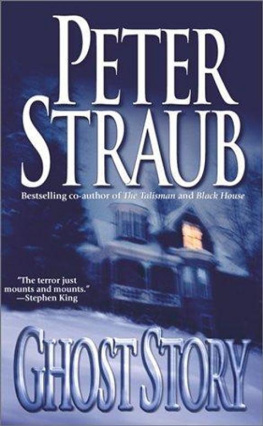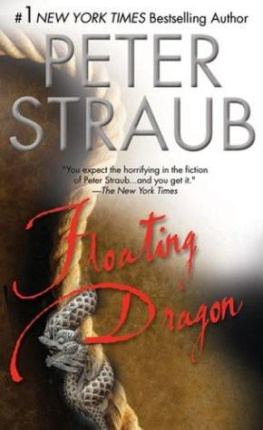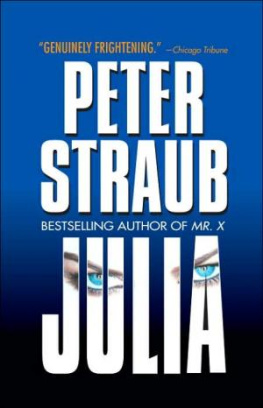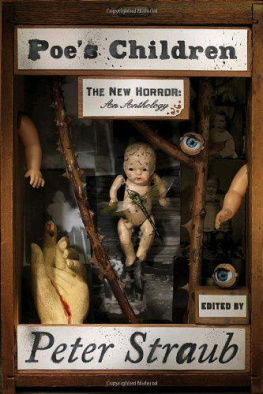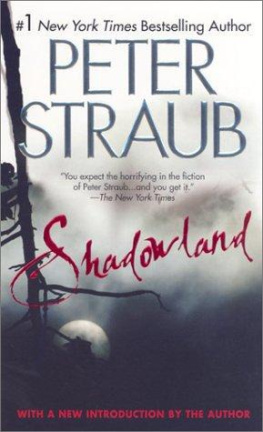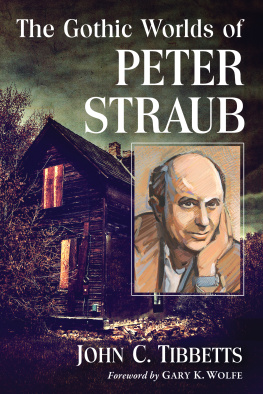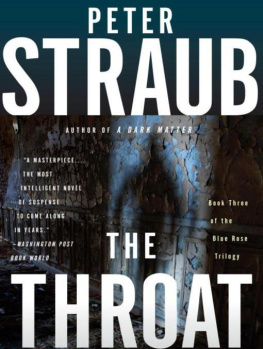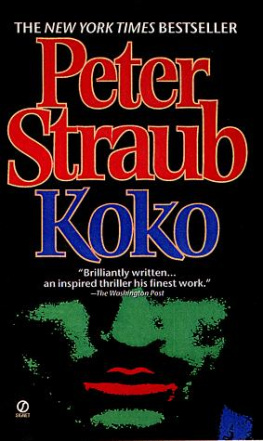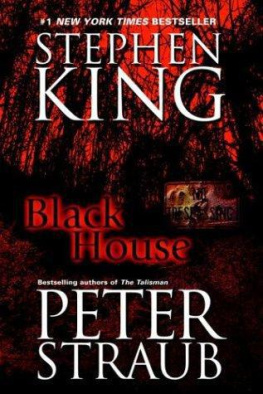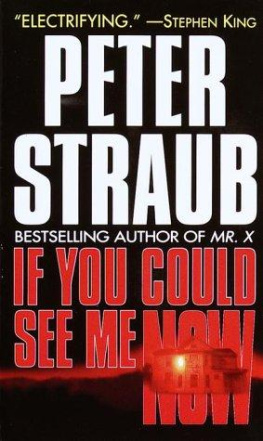Peter Straub - Ghost Story
Here you can read online Peter Straub - Ghost Story full text of the book (entire story) in english for free. Download pdf and epub, get meaning, cover and reviews about this ebook. year: 2001, publisher: Pocket Books, genre: Detective and thriller. Description of the work, (preface) as well as reviews are available. Best literature library LitArk.com created for fans of good reading and offers a wide selection of genres:
Romance novel
Science fiction
Adventure
Detective
Science
History
Home and family
Prose
Art
Politics
Computer
Non-fiction
Religion
Business
Children
Humor
Choose a favorite category and find really read worthwhile books. Enjoy immersion in the world of imagination, feel the emotions of the characters or learn something new for yourself, make an fascinating discovery.
- Book:Ghost Story
- Author:
- Publisher:Pocket Books
- Genre:
- Year:2001
- Rating:4 / 5
- Favourites:Add to favourites
- Your mark:
- 80
- 1
- 2
- 3
- 4
- 5
Ghost Story: summary, description and annotation
We offer to read an annotation, description, summary or preface (depends on what the author of the book "Ghost Story" wrote himself). If you haven't found the necessary information about the book — write in the comments, we will try to find it.
Ghost Story — read online for free the complete book (whole text) full work
Below is the text of the book, divided by pages. System saving the place of the last page read, allows you to conveniently read the book "Ghost Story" online for free, without having to search again every time where you left off. Put a bookmark, and you can go to the page where you finished reading at any time.
Font size:
Interval:
Bookmark:
But in the meantime, as long as he could keep the wind from his neck, he enjoyed the walk. After he had turned out of Melrose Avenue toward the square, he was warm enough to go at a more leisurely pace. Ricky had little reason to rush to his office: clients rarely appeared before noon. His partner and friend, Sears James, probably would not appear for another forty-five minutes, and that gave Ricky enough time to amble through Milburn, saying hello to people and observing the things he liked to observe.
What he chiefly liked to observe was Milburn itself Milburn, the town in which all of his life except for his time in university, law school and the army had been spent. He had never wanted to live anywhere else, though in the early days of his marriage, his lovely and restless wife had often claimed that the town was boring. Stella had wanted New Yorkhad wanted it resolutely. That had been one of the battles he had won. It was incomprehensible to Ricky that anyone could find Milburn boring: if you watched it closely for seventy years, you saw the century at work. Ricky imagined that if you watched New York for the same period, what you saw would be mainly New York at work. Buildings went up and down too fast there for Ricky's taste, everything moved too quickly, wrapped in a self-absorbed cocoon of energy, whirling too fast to notice anything west of the Hudson but the Jersey lights. Also, New York had a couple of hundred thousand lawyers; Milburn had only five or six that counted, and he and Sears had been for forty years the most prominent of these. (Not that Stella had ever cared a whit about Milburn's notions of prominence.)
He entered the business district which lay along two blocks west of the square and continued for two blocks along the other side, passed Clark Mulligan's Rialto theater, and paused to look at the marquee. What he saw there made him wrinkle his nose. The posters on the front of the Rialto showed the blood-streaked face of a girl. The kind of movies Ricky liked could now be seen only on television: for Ricky, the film industry had lost its bearings about the time William Powell had retired. (He thought that Clark Mulligan probably agreed with him.) Too many modern films were like his dreams, which had become particularly vivid during the last year.
Ricky turned dismissively away from the theater and faced a prospect far more pleasing. The original high frame houses of Milburn had endured, even if nearly all of them were now office buildings: even the trees were younger than the buildings. He walked, his polished black shoes kicking through crisp leaves, past buildings much like those on Wheat Row and accompanied memories of his boyhood self down these same streets. He was smiling, and if any of the people he greeted had asked him what he was thinking about, he might (if he allowed himself to be so pompous) have said: "Why, sidewalks. I've been thinking about sidewalks. One of my earliest memories is of the time they put in the sidewalks along the whole stretch of Candlemaker Street here, right down to the square. Hauling those big blocks up with horses. You know, sidewalks made a greater contribution to civilization than the piston engine. Spring and winter in the old days you had to wade through mud, and you couldn't enter a drawing room without tracking some of it in. Summers, the dust was everywhere!" Of course, he reflected, drawingrooms had gone out just about the time the sidewalks had come in.
When he reached the square he found another unhappy surprise. Some of the trees lining the big grassy space were already completely bare, and most of the others had at least a few bare limbsthere was still plenty of the color he'd been anticipating, but during the night the balance had turned and now black skeletal arms and fingers, the bones of the trees, hung against the leaves like signposts to winter. Dead leaves carpeted the square.
"Hi, Mr. Hawthorne," someone beside him said.
He turned and saw Peter Barnes, a high school senior whose father, twenty years younger than Ricky, was in the second periphery of his friends. The first circle consisted of four men his own agethere had been five, but Edward Wanderley had died almost a year earlier. More somberness, when he was determined not to be somber. "Hello, Peter," he said, "you must be on your way to school."
"It starts an hour late todaythe heaters broke again."
Peter Barnes stood beside him, a tall amiable-looking boy in a ski sweater and jeans. His black hair seemed almost girlishly long to Ricky, but the width of his shoulders promised that when he started to fill out, he would be a much bigger man than his father. Presumably his hair didn't look girlish to girls. "Just walking around?"
"That's right," Peter said. "Sometimes it's fun just to walk around town and look at things."
Ricky nearly beamed. "Why that's right! I feel exactly the same thing myself. I always enjoy my walks across town. The strangest things pop into my head. I was just thinking that sidewalks changed the world. They made everything much more civilized."
"Oh?" said Peter, looking at him curiously.
"I know, I knowI told you strange things occur to me. Heavens. How is Walter these days?"
"He's fine. He's at the bank now."
"And Christina, she's fine too?"
"Sure," Peter said, and there was a touch of coolness in his response to the question about his mother. A problem there? He remembered that Walter had complained to him some months before that Christina had become a little moody. But for Ricky, who could remember Peter's parents' generation as teenagers, their problems were always a little, fictionalhow could people with the world still in front of them have truly serious problems?
"You know," he said, "we haven't talked like this in ages. Is your father reconciled to your going to Cornell yet?"
Peter smiled wryly. "I guess so. I don't think he knows how tough it is to get into Yale. It was a lot easier when he went."
"No doubt it was," said Ricky, who had just remembered the circumstances under which he had last had a conversation with Peter Barnes. John Jaffrey's party: the evening on which Edward Wanderley had died.
"Well, I guess I'll poke around in the department store for a while," Peter said.
"Yes," Ricky said, remembering against his will all the details of that evening. It seemed to him at times that life had darkened since that night: that a wheel had turned.
"I guess I'll go now," Peter said, and stepped backward.
"Oh, don't let me hold you up," Ricky said. "I was just thinking."
"About sidewalks?"
"No, you scamp." Peter turned away, smiling and saying goodbye, and strode easily up the side of the square.
Ricky spotted Sears James's Lincoln cruising past the Archer Hotel at the top of the square, going as usual ten miles an hour slower than anyone else, and hurried on his way to Wheat Row. Somberness had not been evaded: he saw again the skeletal branches thrusting through the brilliant leaves, the implacable bloodied face of the girl on the film poster, and remembered that it was his turn to tell the story at the Chowder Society meeting that night. He hastened on, wondering what had become of his high spirits. But he knew: Edward Wanderley. Even Sears had followed them, the other three members of the Chowder Society, into that gloom. He had twelve hours to think of something to talk about.
Font size:
Interval:
Bookmark:
Similar books «Ghost Story»
Look at similar books to Ghost Story. We have selected literature similar in name and meaning in the hope of providing readers with more options to find new, interesting, not yet read works.
Discussion, reviews of the book Ghost Story and just readers' own opinions. Leave your comments, write what you think about the work, its meaning or the main characters. Specify what exactly you liked and what you didn't like, and why you think so.

